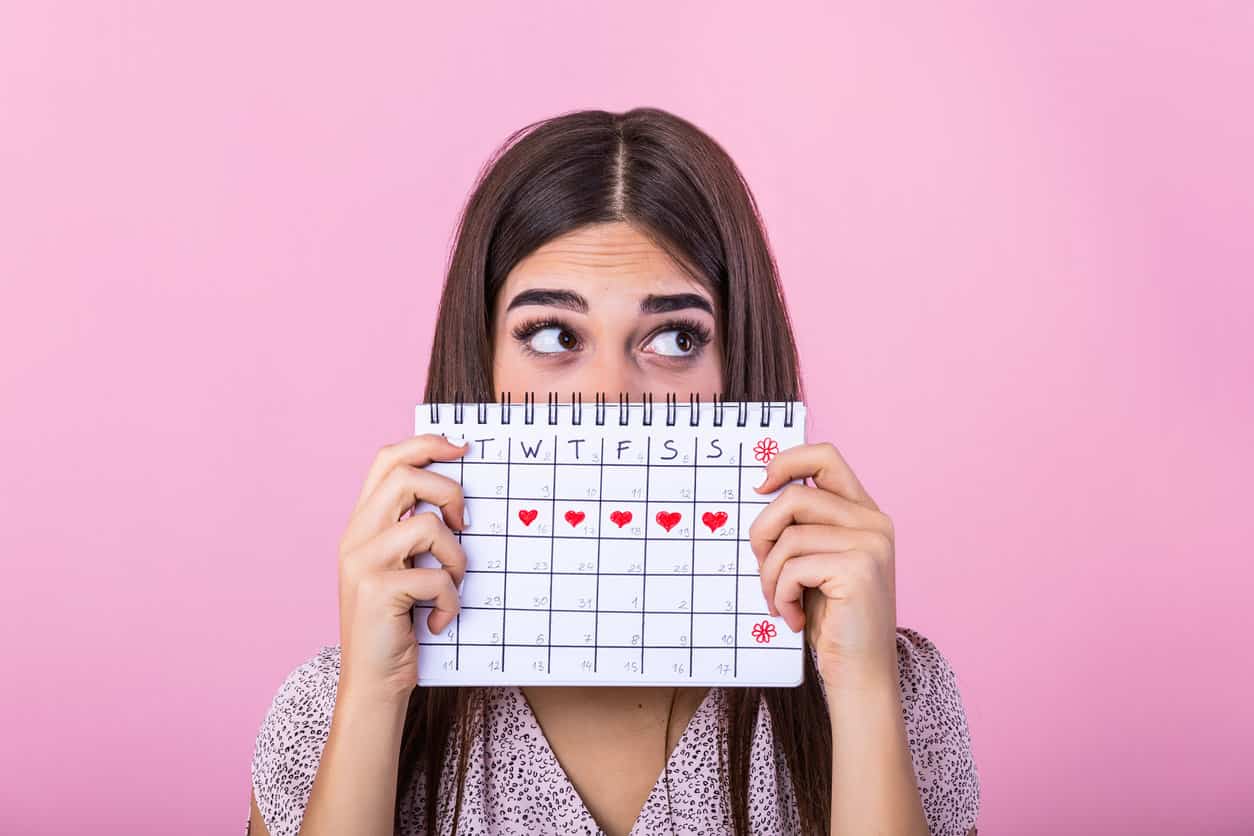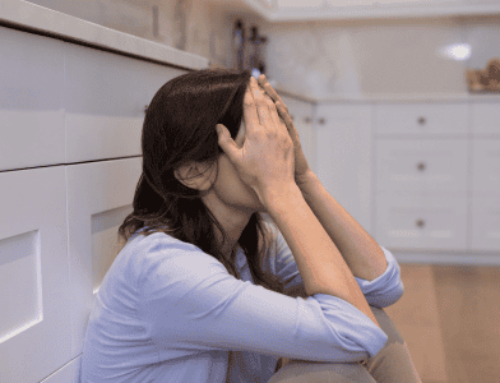
Not having a period may seem like a very welcome prospect for this very unwelcome visitor! However, when a young woman stops getting her period for 3 months or longer, this can be a sign of something else going on in her body.
An absent period in a woman who has already started menstruating is called secondary amenorrhea. This is different from, primary amenorrhea which refers to the delayed onset of a first period. There are different conditions that could be causing an absent period (pregnancy, PCOS or menopause for example), so it is very important to consult your general practitioner to rule out other causes and confirm your diagnosis.
Functional hypothalamic amenorrhea (FHA) is the focus of this article as it is the most common form of secondary amenorrhea. The term FHA refers to the loss of one’s period without any identifiable cause but is often associated with stress, weight loss, excessive exercise or even a combination of these. Physical, mental and nutritional factors put stress on the body and in response, our body decides that our reproductive system is non-essential and as a result shifts energy towards more urgent functions to meet our body’s basic needs. Individuals who are at the highest risk of FHA include female athletes, women who exercise regularly, women who suffer with eating disorders or food-related anxiety.
So what? Not having a period is great! We agree, but unfortunately losing your period due to FHA can result in serious health consequences such as compromising fertility, bone, heart, sexual and mental health. The good news is that in most cases FHA is reversible with lifestyle interventions. It can take time and focus depending on what your individual stressors and challenges are.
Everyone’s health and wellness journey is different! In the case of athletes or women who are highly active, they may just be missing the mark with their food intake. This can be managed with achievable adjustments to their meals or snacks to meet their nutrition requirements. Other individuals may have started exercising or dieting with a desire to improve fitness or eat healthier but don’t understand their body’s requirements. This combined with confusion, social media messages and cultural norms regarding our language and attitude towards diets and weight management, can all lead to disordered eating patterns or anxiety related to weight, food and exercise.
The following is an example of the type of story we hear often of a health and wellness journey that has led to anxiety, fear and ultimately an unhealthy path:
It started out with a desire to be fit, eat healthier food and feel better in general. I’ll visit the gym a couple of times a week, maybe go for a run on the weekend and start planning my meals and buy less takeaway. After a few weeks, I feel great and I’ve even lost a little bit of weight! This is motivation to keep going but what else can I do? Not knowing where to start I decide to do some research of healthy foods to eat, best workouts to do and I start following fitness accounts on Instagram and Facebook for more ideas. I start to see advertising and posts about fasting, keto, detox, juicing, vegan, paleo, plant-based, low-carb, clean eating, low-fat and calorie counting. I start feeling so confused that I discuss it with friends and wow, that did that not clear anything up! I’ve cut out a lot of foods, but I also need to exercise every day to keep making progress. I’ve been doing this for a while now and I feel in control most of the time, but I feel overwhelmed when I go out or eat with other people. I’ve lost more weight, that’s a good thing, right? But I’m starting to not feel so good. I’m struggling to complete my work outs; I feel tired and hungry and I can’t remember when last I had my period.
Food Anxiety can push us to the point when our efforts to be healthy can lead us down an unhealthy path. The origin of food anxiety is complex and multifactorial, as is addressing it. If you think that you may be struggling with food anxiety, read more about the signs and how to manage it in this article. When we get to this point it’s not as straight forward as eating more or exercising less to get your period back, it’s about changing mindset, building awareness, getting evidence-based education, caring support and clear guidance on how to move forward.
We are passionate about helping individuals that are vulnerable to food anxiety and disordered eating patterns through understanding your personal challenges and creating a unique pathway to support your journey back to a healthier relationship with food and yourself! Whether the loss of your period is related to food anxiety or not, it is still important to seek professional guidance from a dietitian on your nutritional requirements as well as medical support from your GP. It is completely reversible and there is help available!



